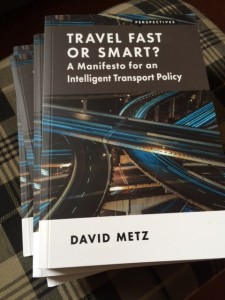I’m looking forward to having a couple of weeks in a place with no internet or 3G signal, and am piling up books to take. This includes a selection of detective fiction, this year:
[amazon_image id=”0552778362″ link=”true” target=”_blank” size=”medium” ]Linda, As in the Linda Murder: Bäckström 1[/amazon_image] [amazon_image id=”0755370007″ link=”true” target=”_blank” size=”medium” ]Vanished (Nick Heller 1)[/amazon_image] [amazon_image id=”1471137066″ link=”true” target=”_blank” size=”medium” ]Leaving Berlin[/amazon_image] [amazon_image id=”1782062084″ link=”true” target=”_blank” size=”medium” ]Extraordinary People: An Enzo Macleod Investigation (The Enzo Files)[/amazon_image]
Some serious fiction/non-fiction:
[amazon_image id=”0747596484″ link=”true” target=”_blank” size=”medium” ]The Suspicions of Mr. Whicher: or the Murder at Road Hill House[/amazon_image] [amazon_image id=”1784700762″ link=”true” target=”_blank” size=”medium” ]Ghettoside: Investigating a Homicide Epidemic[/amazon_image] [amazon_image id=”0571275974″ link=”true” target=”_blank” size=”medium” ]A Strangeness in My Mind[/amazon_image] [amazon_image id=”0099771810″ link=”true” target=”_blank” size=”medium” ]American Pastoral[/amazon_image]
A couple of forthcoming economics books, Brook Harrington’s [amazon_link id=”0674743806″ target=”_blank” ]Capital Without Borders[/amazon_link], and Ryan Avent’s [amazon_link id=”0241201039″ target=”_blank” ]The Wealth of Humans[/amazon_link].
[amazon_image id=”0674743806″ link=”true” target=”_blank” size=”medium” ]Capital Without Borders: Wealth Managers and the One Percent[/amazon_image] [amazon_image id=”0241201039″ link=”true” target=”_blank” size=”medium” ]The Wealth of Humans: Work and its Absence in the Twenty-first Century[/amazon_image]
I will need a couple of others just in case – suggestions welcome.
Of the books I’ve read recently, if anybody wants recommendations, Sam Bowles, [amazon_link id=”B01EUYN5GM” target=”_blank” ]The Moral Economy[/amazon_link] and two books on GDP, Phillip Lepenies [amazon_link id=”B01EB74DFU” target=”_blank” ]The Power of a Single Number[/amazon_link] and Ehsan Masood’s [amazon_link id=”1681771373″ target=”_blank” ]The Great Invention[/amazon_link] are all good reads. I enjoyed [amazon_link id=”1782111239″ target=”_blank” ]The Lonely City[/amazon_link] by Olivia Laing and [amazon_link id=”0553418084″ target=”_blank” ]Street of Eternal Happiness[/amazon_link] by Rob Schmitz. Francis Spufford’s [amazon_link id=”0571225195″ target=”_blank” ]Golden Hill[/amazon_link] is a terrific novel. And yesterday I pointed to my two recommendations for Nature’s summer reading section but all of the books nominated there are great.
[amazon_image id=”0300163800″ link=”true” target=”_blank” size=”medium” ]The Moral Economy: Why Good Incentives are No Substitute for Good Citizens (Castle Lectures Series)[/amazon_image] [amazon_image id=”0231175108″ link=”true” target=”_blank” size=”medium” ]The Power of a Single Number: A Political History of GDP[/amazon_image] [amazon_image id=”1681771373″ link=”true” target=”_blank” size=”medium” ]The Great Invention: The Story of GDP and the Making (and Unmaking) of the Modern World[/amazon_image]
[amazon_image id=”B014RK0QF2″ link=”true” target=”_blank” size=”medium” ]The Lonely City: Adventures in the Art of Being Alone[/amazon_image] [amazon_image id=”1444791052″ link=”true” target=”_blank” size=”medium” ]Street of Eternal Happiness: Big City Dreams Along a Shanghai Road[/amazon_image] [amazon_image id=”B01FQVWXPW” link=”true” target=”_blank” size=”medium” ]Golden Hill[/amazon_image]

